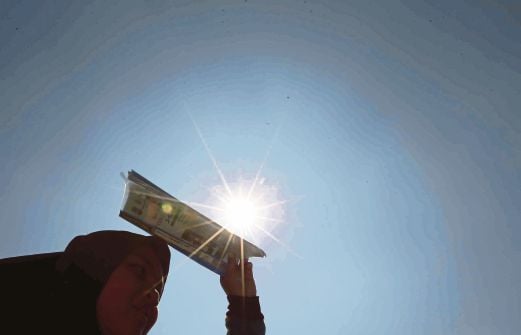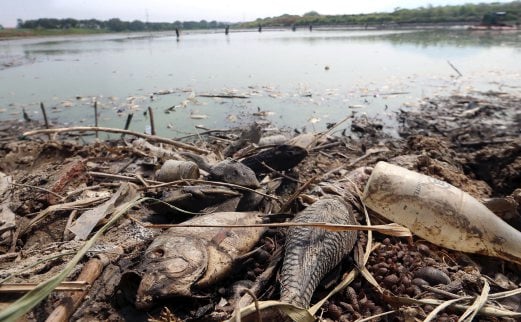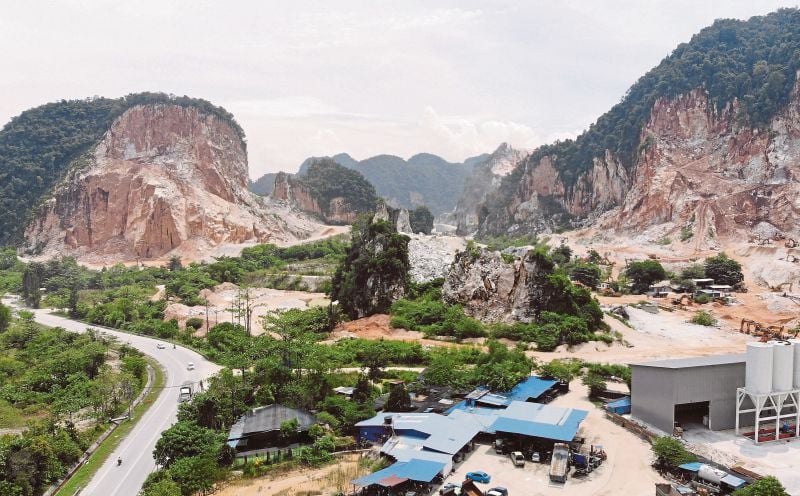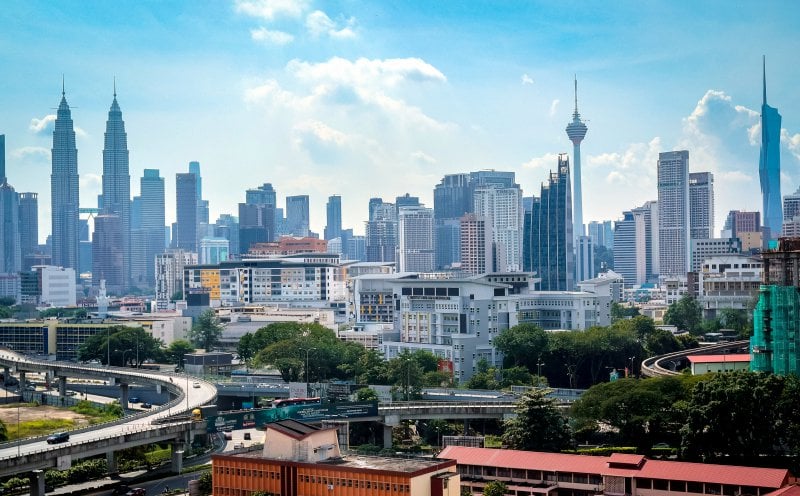KUALA LUMPUR: Climatologists have sounded the alarm, warning of severe consequences of the El Nino phenomenon, as the latest developments suggested that the country will endure the hot spell up to June.
Experts cautioned of a situation as bad the 1997-98 El Nino, the worst in the country’s history.
They warned that a four-month-long dry spell and scorching heat could, as in the past, lead to severe air pollution, choking haze, and massive forest and bush fires.
Malaysians, they said, must also brace themselves for severe water shortages if no pre-emptive measures are put in place.
In Sabah, Science, Technology and Innovation Minister Datuk Wilfred Madius Tangau yesterday said the El Nino phenomenon would likely last until June, instead of next month as projected earlier, although the extreme temperatures would slowly dip and more rainfall would be recorded in May.
Universiti Kebangsaan Malaysia’s climatology and physical oceanography expert Professor Dr Fredolin Tangang said the drought would likely continue affecting the whole region, with Sabah and northern Sarawak set to be the hardest hit in the next two months.
The authorities, he said, had no choice but to plan precautionary measures to deal with the situation.
“The El Nino this year is looking to be almost equal in strength to the one in 1997-98. This phase of the El Nino is a continuation from last year’s, when we were affected by a thick blanket of haze.
“Researchers concluded this El Nino poses almost the same threats as the one we faced almost two decades ago. It is worrying,” Tangang told the New Sunday Times yesterday.
Water quality specialist Dr Zaki Zainudin said the prolonged El Nino would result in an increase in overall temperature, which would be compounded by lower rainfall in many parts of the country. This would lower the level of water in rivers, lakes and catchment areas.
“Reduced flow of water also means a potential increase in pollutants in our streams and rivers.
“A lot of waste is dislodged into rivers, so the reduced volume of water at these sources will not help with dilution. As a result, pollutants, such as ammonia, organics and maybe even solids, will be a real threat.
“The aquatic ecosystems will also be under a lot of stress (because of the high ammonia and low dissolved oxygen levels). If it prolongs, it will result in fishkill (in which massive numbers will die),” he said.
Zaki told the NST that rivers, from which low levels of water were still being extracted for supply, treatment and distribution to homes, might contain high volumes of pollutants and may not be fit for human consumption.
“This has happened before. The rise in ammonia (above 1.5 mg/L) in Sungai Langat caused two plants to shut down in 2014. Conventional treatment systems are incapable of treating ammonia. Hence, there may be risks of sporadic disruptions now and again.”
Zaki said the authorities should prepare contingencies when demand for water exceeded supply.
“For example, plans for interdistrict or interstate water transfer could start being drafted and alternative water sources, such as lakes, should also be considered.
“There should also be increased efforts in pollution prevention.”
Natural Resources and Environment Minister Datuk Seri Dr Wan Junaidi Tuanku Jaafar said agencies under his ministry were monitoring water levels at all reservoirs as well as marine water temperatures and haze and forest fires.
“The states are being kept in the loop as this comes under their purview.
“The Forest and Marine Park departments have been advised to monitor forest and marine parks. They will also observe our coral reefs and keep a close eye on marine water temperatures,” he said, adding enforcement officers and rangers were on standby.
Wan Junaidi said while the Department of Environment (DOE) had also been monitoring the pollution index and haze, several other enforcement agencies would work together to curb open burning.
“The ban against open burning is being enforced. The DOE is monitoring compliance with several other agencies tasked with assisting in enforcing the law.
“These include the police, Fire and Rescue Department and local councils,” he said.
Wan Junaidi said those who failed to adhere to the rulings would face legal action, including being dragged to court.
“We are also working with the states to review their laws and make amendments where necessary, like we are doing with the Environment Act now.” Additional reporting by Avila Geraldine

















